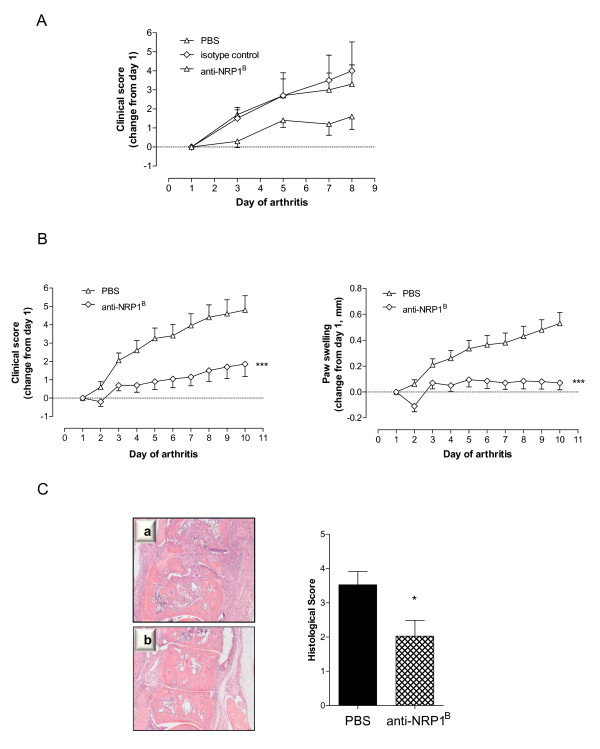Figure 6.
Treatment with phage-derived monoclonal antibody against neuropilin-1 (anti-NRP1B) reduces disease severity in collagen-induced arthritis (CIA). A) Isotype-matched control antibody has no effect on disease progression in CIA mice. Starting at the onset of clinically evident arthritis, mice were randomised into three groups (n = 5/group) and treated intraperitoneally with 200 µg anti-NRP1B antibody, 200 µg isotype-matched control antibody or PBS on day 1, day 4 and day 7 of CIA. The clinical score was recorded every other day and presented as change from day 1. B) Effect of anti-NRP1B on the clinical progression of arthritis. Starting on the first day of clinically evident arthritis, mice received 200 µg anti-NRP1B antibody or PBS intraperitoneally on day 1, day 4 and day 7 of CIA. The clinical score and paw swelling were recorded daily and presented as change from day 1. Data are expressed as mean ± SEM (n = 10/group) and analysed by two-way ANOVA (PBS versus anti-NRP1B; ***P < 0.001). Results are representative of three independent experiments. C) Paws from anti-NRP1B-treated mice (b) displayed significantly reduced articular inflammation and destruction compared to those from PBS-treated mice (a). After treatment, hind paws were collected, fixed, decalcified, and haematoxylin/eosin sections prepared. Histological appearance was scored for the degree of bone erosion, synovial hyperplasia, and cellular infiltration. Shown are representative metatarsal joint sections from PBS-treated and anti-NRP1B-treated mice (original magnification × 40). The histological changes differed significantly between the two treatment groups (Mann Whitney test, *P < 0.05).

